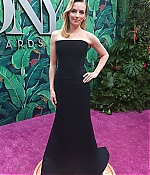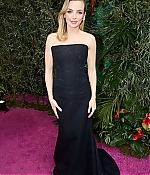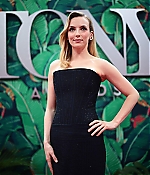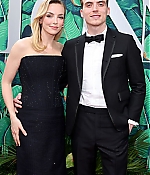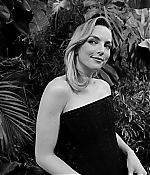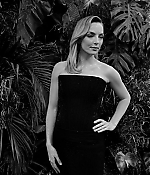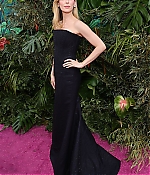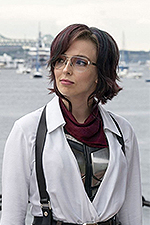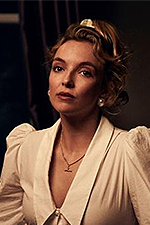
‘Killing Eve’ EP Sally Woodward Gentle on How Going With Her Gut Shaped Four Seasons and a Finale
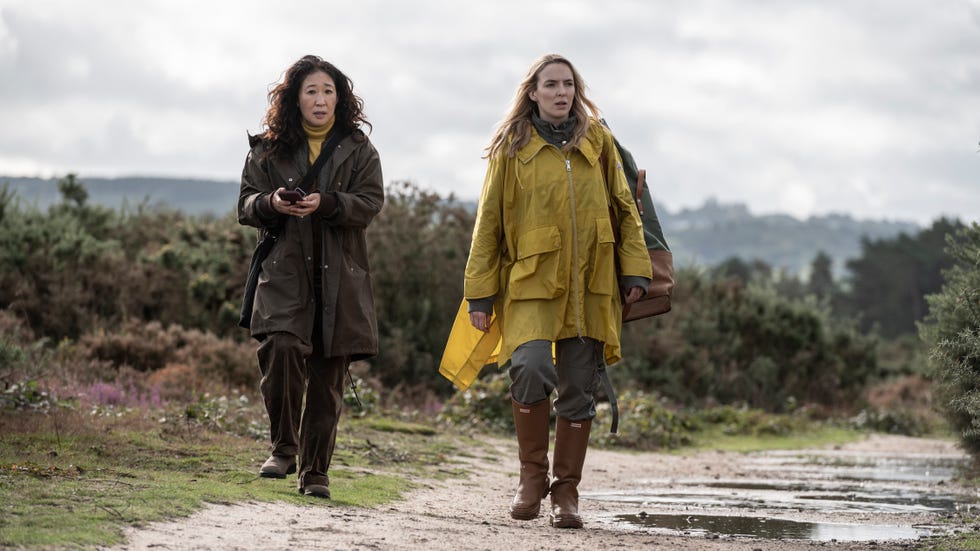
Article from The Hollywood Reporter.
The Sid Gentle Films CEO talks to The Hollywood Reporter about the BBC America hit’s journey to its final season, the women who helped get it there and what the final episode will deliver for its subversive female leads.
Sally Woodward Gentle has spent the better half of a decade producing one of television’s most subversive shows, BBC America hit Killing Eve. It’s an act that has arguably been as freeing and unpredictable offscreen as the experiences of its leading duo, Eve and Villanelle, onscreen.
“I don’t plan anything or construct anything,” the executive producer told The Hollywood Reporter ahead of the series finale. “I just sort of go with my gut.”
Gentle says the series is actually a byproduct of “lots of people’s guts.” That includes original head writer and EP Phoebe Waller-Bridge, Emmy winner Jodie Comer as Villanelle and Golden Globe winner Sandra Oh as Eve (doubling as an EP), its slew of female head writers and female directors, and fellow producer Lee Morris, to name just a few.
While gut moves might seem risky on a show operating under a high “level of scrutiny and expectation,” leaning into instinct versus any sense of planning fostered a space where “extraordinarily bold, brave and ambitious” talent could plot the course of a hit series. “We had to honor that, and it became part of us. There was no other way that it could be,” Gentle explains. “I don’t think that there were really many conscious choices about things that we wanted to say, but because the room was so female and the power of those actors and Fiona Shaw, it just sort of burst itself.”
The spy-thriller will deliver one final dramatic burst in its series finale, an hour of TV that acts as both climax and culmination of its wildly addictive female leads’ winding journeys.
“When we knew that season four was going to be our last, it was actually terrifying but really liberating because you knew that you could tell a proper story about their relationship. We also had some very clever queer writers involved in the room who got it and honored everything we wanted to do with those characters,” Gentle explains of Eve and Villanelle’s final adventure. “I think that it is an espionage piece. It is about assassins, but ultimately, it’s a love story, and it’s a story about discovering who you really are.”
That story of love and self-discovery began with the CEO of Sid Gentle Films picking up Luke Jennings’ Codename Villanelle novellas about an assassin with a female-female cat-and-mouse game at the center. It’s an amazing concept alone, she says, “when you think about how there was never any point where we didn’t automatically think the lead character was going to be a woman.”
Once in hand, Gentle asked not just how it could be adapted, but what it would take to avoid comparisons with similar entries in the genre like La Femme Nikita. “I started thinking about how you pair this subject matter and the potential for this content with a very different voice,” she recalls. “That’s what my job is — to find IP, put clever people with it and then see what happens.”
Award-winning British writer Waller-Bridge was her answer. The duo had met after Gentle read Fleabag (adapted into an Emmy-winning Amazon series), and when the producer took Jennings’ books to the writer, Waller-Bridge responded.
She would write the entire first season, but with her rising popularity came some unexpected news: she was going to do another season of her Amazon show. “She’s brilliant — she dedicates herself to those projects solely, and there was no way she could have done Fleabag season two and Killing Eve season two at the same time for Killing Eve to come back in the way that it needed to,” Gentle explains.
While there may have been no plan to disrupt, Waller-Bridge not coming back was unforeseen, leading the team into the “rash” decision to try something different: passing the head writer baton for each season on to another person. However seamlessly the show may have made those transitions look, it was “practically, really hard,” the producer says.
“It sounded like a good idea at the time,” she continues. “If you have a different female voice per season, it’s anchored by the characters that have been born out of what was done in season one and how the actors have inhabited them.”
Comer, Oh and Shaw would be the perfect anchors. The producer says they ultimately went with Comer after looking for a more unassuming woman who defied the “pneumatic, cliched male fantasy of a female assassin” for Villanelle. “It’s like when somebody comes along, and the minute they inhabit [a character], you can’t even remember who you previously considered,” Gentle says of the “mesmeric” performer.
While Comer was an audition find, Oh was hand-picked, a suggestion from Waller-Bridge on a phone call to Gentle while she was on the tube. “It was really important that Eve had a hinterland, and I think that Sandra brings so much complexity and wisdom,” she explains. Meanwhile, Shaw, who played the head of MI6’s Russian desk for three seasons before being fired in the season four premiere, completes the trio of the show’s sharp, compelling and complex female leads and was virtually the first person the team thought of. “We were just bloody lucky that she said yes,” Gentle confesses.
They’d be the throughline as each new season brought in a new writer — first Emerald Fennell for season two, next Suzanne Heathcote for season three, and finally, the only writer from a previous season’s room to take on the mantle, Neal for the final run. Gentle says that while they all brought something unique, they shared an understanding of the show’s tone, had both the ambition and time to turn around a season quickly, possessed a wicked sense of humor “not overly tied to appropriateness,” and were “really brave.”
“Each time you get a new lead writer, you’re having to leave yourself open for them asking questions that you think you’ve shut down, or you think you’ve solved,” Gentle said of her realizations around working with new writers.
With that acquired approach, the writers helped Killing Eve continuously shift and expand across four seasons through its point of view, characters or relationships to deliver a coherent “arc that is satisfying and different,” for all its leads. Along with its female trio, for four critically acclaimed seasons that also included Kim Bodnia’s Konstantin. It would become a show that “managed to slow burn at just the right pace,” Gentle says, and avoid having to succumb to total reinvention to continue.
“I think if we’d gone beyond four seasons, it would have become a very different show,” Gentle says of deciding to end Killing Eve. “I think four seasons feels the most truthful for the arc for Eve and Villanelle. If it goes on beyond then, we won’t buy it anymore.”
Killing Eve began as a darkly funny and flamboyantly violent spy-thriller. Where it ends on Sunday still embodies this to a degree, but more fully that ongoing romantic dance between two women trying to be completely honest about each other and themselves. It’s something seen not just through Eve and Villanelle’s fascination-turned-affection but through the finale (and ultimately the entire season’s) violence, which Gentle says is more brutal than before.
“I think that Villanelle, when she is an assassin for hire, just loves it, and she’s brilliant at it — she’s inventive, witty, and she entertains herself by how imaginative she can be,” Gentle says. “But in season four, [the kills] become a lot more personal, a lot more truthful, and therefore, a bit more brutal.”
“But we never wanted it to be sexually motivated or for it to look like Eve got a sexual kick from [the killings]. It felt like that was leaning slightly into the male fantasy of it all,” Gentle says. “The shows that upset me the most are where there is violence against women, and it is used as a moment to spice up a boring episode. You just say, ‘What the fuck is that?’ It’s so abhorrent. And I hope we don’t do that.”
For Eve’s journey, the finale will answer those longstanding questions around the show’s title. “I think she’s wish-fulfillment for most women,” Gentle says. “When she was being conceived before Sandra brilliantly inhabited her, we thought, ‘This is a woman who thought there were no limits to what she could do, but slowly bits of that have been beaten out of her to the point where she thought that she just had to settle.’”
“I think that’s the same for a lot of women,” she continues. “We lose our sense of possibility. So there’s a bit, even for me, that’s just like, fuck it. Why can’t we try to remember the dreams that we had when we were younger and then hope to realize them?”
As for the characters as a duo, expect the finale to address the core themes that season four has explored with them: killing, of course, but also trust, reconnection and change. “It was very important for Jodie and Sandra that their characters had shifted and changed,” Gentle tells THR. “And the notion that change is possible was very important for everyone involved. So what does change look like? How does it manifest itself?”
While fans will have to watch the finale to see what those changes will be for Eve and Villanelle, it’s abundantly clear that change was possible for Killing Eve’s creative team, an incubator of sorts for distinctive female voices. This expanding group of talent made this final journey possible by keeping the series fresh and from the gut and making the show environmentally unlike other projects the EP has produced.
“The biggest difference was being in a room with all women where you’d never had to explain anything because you just understood each other,” she says. “I went to an all-girls school, and we were taught there was nothing you couldn’t do. I came quite late to the game of having my eyes open to how chauvinistic the industry is. But if you surround yourself with more women, that just doesn’t cut through.”
That experience eventually broke through other departments beyond the writer’s room, most notably in season four. The producer explains that the series has always had “brilliant female costume designers,” but now it has a “brilliant female production designer,” too. Season four also distinguished itself through its all-female directing team of Stella Corradi, Anu Menon and Emily Atef, who followed in the footsteps of previous seasons’ female directors Lisa Brühlmann, Francesca Gregorini and Miranda Bowen.
“What [Killing Eve] allowed us to do was open up the possibility of working with brilliant female directors from wherever they were in the world. People wanted to work on it, so it became easier to tempt people over. And what happens is you end up getting a trickle-down in terms of crew,” Gentle says.
During season three, the effectiveness of that trickle-down approach came under a microscope after writer Kayleigh Llewellyn shared a photo of a predominantly female but very white writers room on Twitter. The producer says that the criticism led to her recalibrating from the gut yet again.
“When you’re in a busy atmosphere, your backstop can just be, ‘OK, I know so and so, and they can do it. Just bring them in,” the Killing Eve exec producer says. “But every single department needs to be held to account. Don’t just sit back and do what is familiar to you.”
“And don’t be embarrassed to have the conversations about it,” she adds. “You’ve got to constantly remind everybody that our bias toward people that look like us is unconscious, but it is there, and you’ve got to constantly check it. Be held to account, be reminded and realize that you might fuck up sometimes, but that you’ll just keep on trying.”
It’s the kind of reflective gut check that can happen in an environment without a strict roadmap and that’s open to change; when you are willing to relinquish those reflexes to stick with what you know and instead follow your instincts into areas you haven’t been. All of season four, but especially Killing Eve’s series finale, are in the spirit of exactly that.
“We didn’t set out to go, ‘OK, what’s going to be subversive about this season,’ but I think what we didn’t want to do is more of the same,” Gentle says. “Maybe that’s the most subversive thing.”
The final two episodes of Killing Eve will air at 8 p.m. ET/PT on Sunday, April 10, on BBC America, with a weekly encore presentation of both episodes airing on AMC Monday, April 11, starting at 9 p.m. ET/PT. The series finale is available to stream Sunday, April 10, on AMC+.

